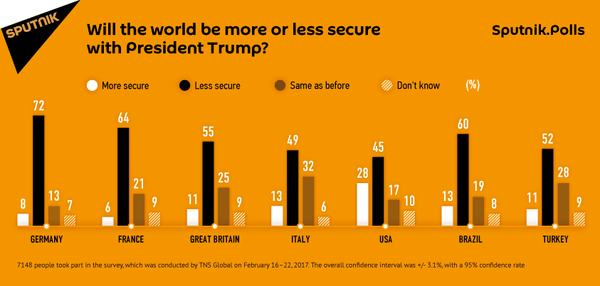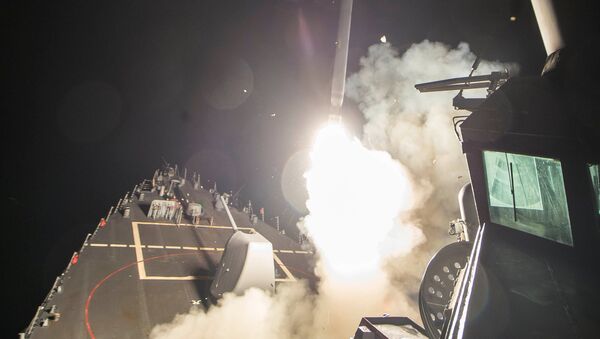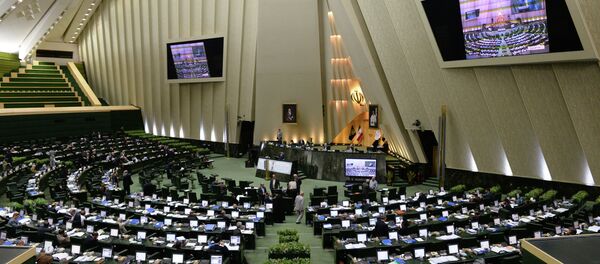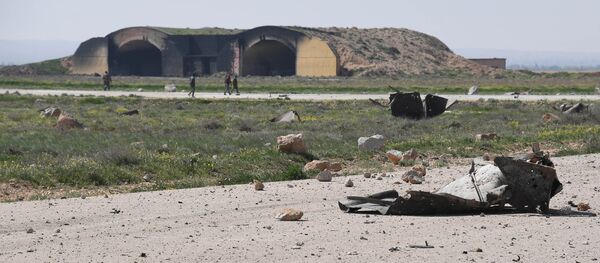According to the latest Sputnik.Polls survey, conducted by TNS Global for the Sputnik news agency, majorities in Germany, France, and the UK, as well as 49% of respondents from Italy, believe that the world will become less secure under President Trump. Majorities in Brazil and Turkey share the same view, with 45% of Americans feeling the same way.
Italians were somewhat more optimistic, with 13% saying the world will become 'more secure', and 32% saying it will remain the 'same as before'. 28% of American respondents also think the world will become 'more secure' under Trump, with 17% saying it will stay the 'same as before', and 10% saying they don't know.

Conducted in mid-February, about a month following Trump's inauguration, the survey polled 7,148 residents of Brazil, France, Germany, Italy, Turkey, the UK, and the US.
However, it would be interesting to see how last week's events may have altered opinions.
The attack destroyed 6 MiG-23 aircraft and several base facilities, and resulted in the deaths of over a dozen troops and civilians in and around the base. However, the Syrian Air Force has since repaired the base and resumed operations, openly defying US power.
The unanticipated and unjustified attack left observers puzzled over the divide between Trump's campaign promises to fight Daesh and reject his predecessors' interventionist policy and his administration's actual Syria policy.
Following the strikes, European leaders rushed to praise Trump for his "resolve." France and Germany issued a joint statement stating that Damascus "bears full responsibility" for the cruise missiles attacks, adding that the international community should "join forces for a political transition in Syria," i.e. regime change. French President Francois Hollande jubilantly noted that France had sought such strikes following the Ghouta chemical weapons attack in 2013 (for which Assad was also blamed). EU Council President Donald Tusk, meanwhile, tweeted that the EU too "will work with the US to end brutality in Syria."
US strikes show needed resolve against barbaric chemical attacks. EU will work with the US to end brutality in Syria.
— Donald Tusk (@eucopresident) 7 апреля 2017 г.
Speaking to Radio Sputnik about the findings, and European leaders' response, Vadim Trukhachev, senior lecturer in the Department of Foreign Policy at the Russian State University for the Humanities, suggested that European governments have a bizarre tendency to support regime change in Middle Eastern countries, even though the fallout from these operations hits them much harder than it does their overseas ally.
"The European bureaucratic machine began saying that Assad was a 'tyrant' back in 2011; on this front, leaders who distinguished themselves included former French President Nicolas Sarkozy, former UK Prime Minister David Cameron, and to a lesser extent, German Chancellor Angela Merkel. They spoke a lot about how Assad was supposedly such a bad guy, and that it was necessary to help the 'moderate opposition'. [Subsequently], the 'Assad must go' idea settled in Europeans' minds," Trukhachev noted.
However, these same countries have paid a heavy price for their support of Washington's actions, Trukhachev added. For their support of the US narrative, all they got was "a flood of refugees, with which they are still struggling to cope."
"And for their support of the [new wave of] US air strikes in Syria, they may get another wave of refugees," the observer warned.
In the coming weeks and months, it will be interesting to see how ordinary Europeans react to their leaders' continued cheerleading of operations to destabilize the Middle East, which only affect many of their countries on a day-to-day level with the tremendous socio-economic problems associated with the refugee crisis.





